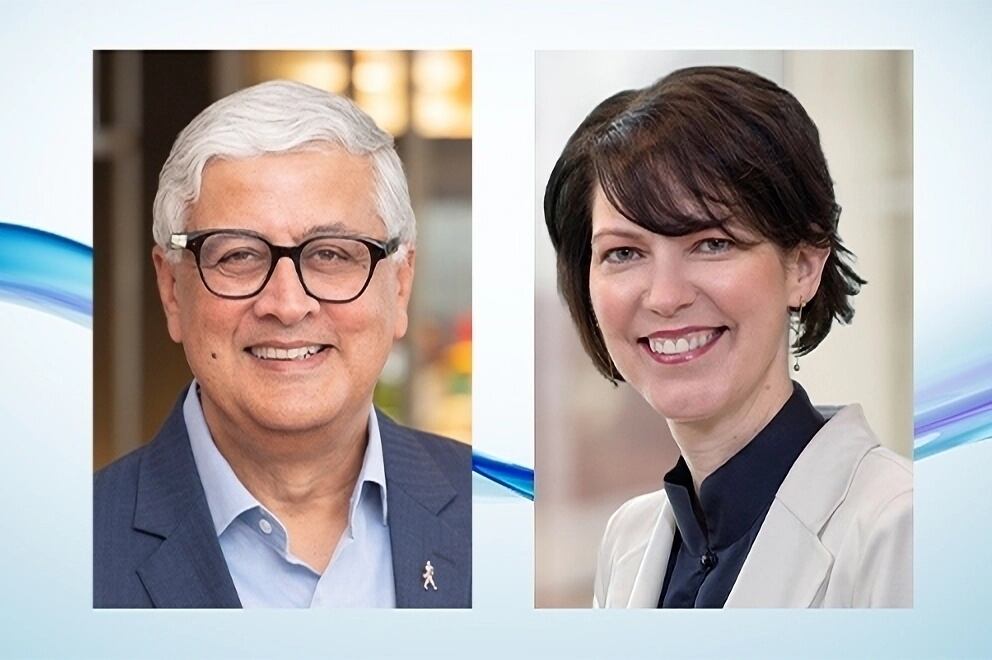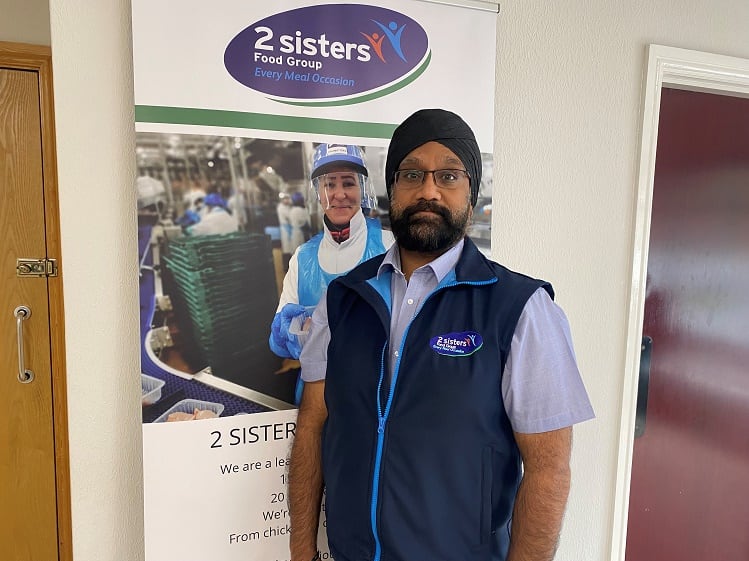It was very evident at last month’s Food & Drink Expo, hosted at the NEC in Birmingham, that the food sector is a highly dynamic and exciting place to work. As you would therefore expect, it has within its ranks, some incredibly committed and inspirational leaders – bringing on teams and businesses to achieve ever higher levels of performance and outputs.
While we are seeing increasing levels of investment in automation, the most successful leaders are still those who can translate a vision into reality by inspiring the individuals and teams who work for them. This month I am exploring what it means to be an inspirational leader and the qualities that lead to success in the food sector. To help me answer this, I sought the expertise of Ian Noble, senior RDQ director at Mondelez International.
The difference between management and leadership
In a previous column, I estimated that the food sector employs around 50,000 managers. It is important to recognise, however, that not all these managers are (or are expected to be) leaders. The role of managing and supervising people can be quite a functional activity – delegating, managing performance, scheduling, dealing with payroll etc. Leadership, on the other hand, tends to start with a vision and is about the translation and communication of this in ways in which people and teams can be inspired and motivated to deliver the vision. Leaders will understand and trust the capabilities of the people working for them and how to motivate and support them to deliver, even through the most difficult challenges.
Noble agreed: “I think inspirational leaders have the ability to redefine what the team believes to be possible. They have the insight to know or predict what is ahead to prepare the team for the challenges they haven’t yet met. Good leaders have belief in their teams, combined with a real desire to support their teams and each of the team members on their personal growth journeys, as they re-define what is possible.”
Inspiring leadership starts with a vision
The key to being an inspiring leader is having and communicating a vision. While effective businesses will have a well-defined strategic vision, it isn’t always about the big 5-10-year vision statement for the whole business. Leaders throughout an organisation can have visions relating to their areas of responsibility – whether functional, departmental, or even for a small team.

“I think that a true vision engages people through a sense of purpose and gains their commitment to it,” Noble said. “You can feel when you get to that and also when you don’t. In terms of building a vision to create or achieve something for the first time, leaders need to build that with a small group of people who join them in belief and commitment, strengthening and building with their own beliefs, knowledge, capability, imaginations…and so it builds out. That said, this doesn’t mean the vision is created through committee - it’s fundamentally come from the leader.”
Of course, developing a vision serves no purpose if this is not then fully understood and bought into by those who ultimately have the responsibility for bringing it to reality. This is more than merely ‘communicating’ the vision. Noble was very clear on this: “I think this is ‘hearts and minds’ territory. I’m asking people to do something that they and potentially no-one else has ever done and so it must start with personal belief in what I’m trying to achieve and why it’s important, and my commitment to the people in the team. This is about talking to people in person, not through monitors and emails, they have their place for updates but not for engaging people’s enthusiasm, capability and commitment. You’re building a personal contract between yourself as a leader and each member of the team. You build it personally; that needs to be personal – recognising that communication is verbal and non-verbal.”
Focusing on the end goal
However experienced and inspiring the leader is, good leaders recognise the focus should not be on themselves but on achieving the end goal. As Noble stated: “It’s not about the leader, the focus has to be on the goal – the leader’s role is to enable the team to achieve what may appear, as yet, unattainable. So, whilst the leader will champion the team and, on occasions, speak for them, the focus must be on the goal. I find the ‘Servant Leadership’ framework useful in this context.” A concept wherein the leader does not position themselves at the top of the hierarchical pyramid.
There is an important message resulting from this. To be an effective and inspiring leader does not necessarily mean having to be colourful, charismatic or extrovert. Some of the most effective leaders achieve exceptional results quietly but confidently, supporting and motivating their teams and individuals – focusing on the team and how they can best to achieve the end goal.
Ian Noble: Bio
Dr Ian Noble FREng, IAFoST, FIChemE
VP R&D – Research and Analytical – Mondelēz International
Ian leads the scientific research, analytical and sustainability agendas globally for Mondelēz R&D, with a group based across our global network of technology centres in Asia, Europe, North & South America.
Prior to joining Mondelez, Ian led the Global Emerging Snacks Technology group for PepsiCo R&D where he was responsible for creating and delivering new technologies. Ian joined PepsiCo in 2007 from Unilever he was latterly the Global FoodService Beverages R&D Director. He has enjoyed an international career working in many countries.
Ian is committed to strengthening the technical agenda that enables our Food System in the UK and beyond, to enable greater productivity, growth and sustainability for this vital sector of our modern economy. He contributes externally through his membership of external advisory boards including the Future Food Beacon at Nottingham University, ISCF-MADE SMARTER and he chairs the UK Food Sector KTN. Having previously been a member of the UK AgriFood Tech Leadership Council, DEFRA - Food Research Partnership and other External & Scientific Advisory Boards including: UK Global Food Security, Food & Environmental Research Agency and N8 AgriFood.
He is a visiting Professor in the School of Chemical Engineering at the University of Birmingham (UK) and has been awarded Fellowships of the Royal Academy of Engineering, the Institute of Chemical Engineers and International Academy of Food Science & Technology. Additionally he is a trustee of the APV Seligman Trust.
Greater than the sum of the parts
Being an inspirational leader is very like being a conductor of an orchestra. The conductor doesn’t need to be able to play all the instruments – and certainly not as well as the performers. Their role is to focus on how the players and instruments best work together to create the overall end sound. The players themselves may be the best in the world, however, a top-class conductor still has the ability to raise the whole orchestra to an even higher level.
Noble reflected: “It doesn’t concern me that the team knows more than I do – my role as leader is to inspire everybody on the team to strive to achieve more than they knew they could.”
The qualities of successful leaders
Trying to analyse the qualities of the most successful leaders in history and of the present day, with a view to establishing some of their common, exceptional qualities, is an almost pointless exercise - it’s a popular and fun exercise at the start of many leadership training programmes. What it does really demonstrate, however, is just how diverse and individual, leaders’ personalities and approaches can be. Being an exceptional leader is less about trying to emulate others’ qualities (which you can rarely achieve) and more about being true to oneself and others.
What is common to all successful leaders is their passion and belief in what needs to be achieved. As Noble put it: “Leaders have an unquenchable determination - a belief and optimism over what needs to be achieved. It’s not about irrational enthusiasm, there are times when it’s b****y hard. I think it’s okay to acknowledge that and to lead through that – to keep your optimism and belief in the goal and the team.
“I think it’s vital to be present, connected with the team, just being there at times when you know they need a lift. It’s also about recognising achievements in the moment, not waiting for a meeting in the calendar – leadership is a personal commitment.”
Keen to hear from other inspiration leaders? Read about Clare Menezes’ of McCormick take here or Barfoots’ Keston Williams’ advice on being a confidence decision maker.




